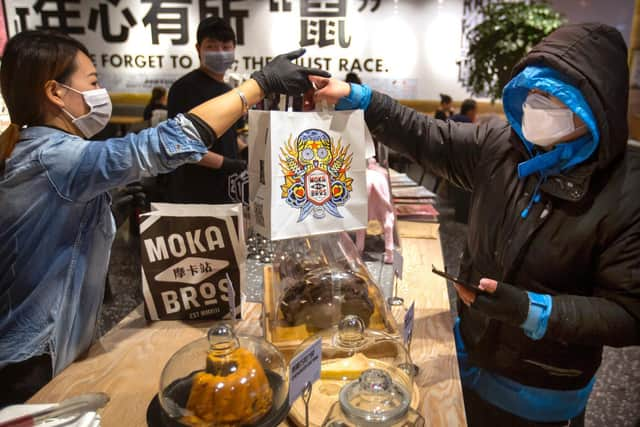Church of England issues Holy Communion advice to reduce risk of Coronavirus transmission
and live on Freeview channel 276
In new guidance issued on Thursday, the church said current Government advice did not suggest that the sharing of a "common cup" during Holy Communion services should be suspended.
"Long-standing government advice has been that 'In a pandemic, it makes good sense to take precautions to limit the spread of disease by not sharing common vessels for food and drink.' COVID-19 has NOT been declared a pandemic," the guidance published on the church website said.
Advertisement
Hide AdAdvertisement
Hide AdIt said parishioners with "coughs and sneezes" should already be encouraged to receive Communion in "one kind only" and "to refrain from handshaking during The Peace".


An integral part of Christian worship, Holy Communion, also known as the Eucharist, involves worshippers receiving consecrated bread and wine in memory of the Last Supper taken by Jesus and his disciples.
During communion services, congregations also observe "the peace", a pause in proceedings where people typically shake hands with those around them.
In its new guidance, the church said: "It is also best practice for churches to have hand-sanitisers available for parishioners to use.
Advertisement
Hide AdAdvertisement
Hide Ad"In addition, priests presiding at the Eucharist, communion administrators and servers should wash their hands, preferably with an alcohol-based (minimum 60%) hand-sanitiser."
The practice of intinction, when consecrated bread is dipped into the wine, should be avoided, the church said, as it "represents an infection transmission route".
"Best hygiene practice should continue to be observed in all pastoral contacts," the guidance added.
It was written by Dr Brendan McCarthy, the Church of England's adviser on health issues, and is being kept under "close review".
Advertisement
Hide AdAdvertisement
Hide AdThe Bishop of Carlisle, James Newcome, the church's lead bishop on health issues, said: "We pray for all those affected by Coronavirus (COVID-19) here and around the world, particularly in China, and for all those caring for them.
"The virus has not been declared a pandemic and at present the risk in this country is assessed as 'moderate'. However, there are, of course some practical measures churches can take.
"Much of that is simply maintaining good hygiene including, for example, priests and servers washing their hands and using alcohol-based hand-sanitiser before Holy Communion."